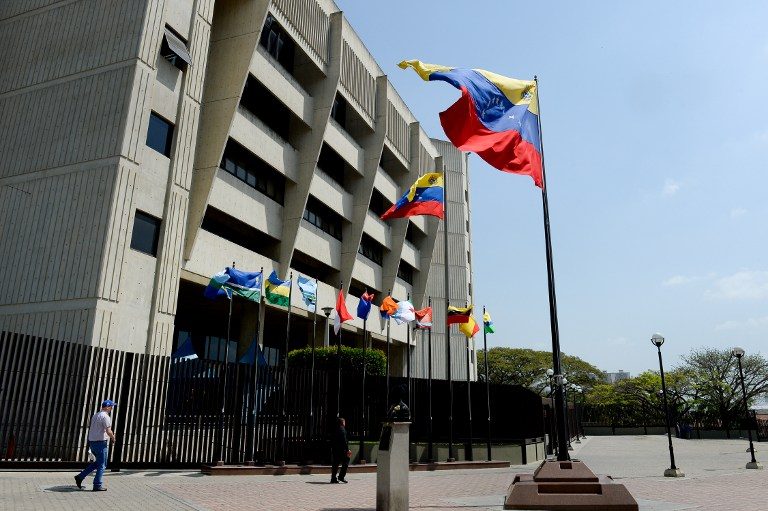SUMMARY
This is AI generated summarization, which may have errors. For context, always refer to the full article.

CARACAS, Venezuela – Venezuela’s opposition called Tuesday, March 8, for the “largest movement that has ever existed” to oust President Nicolas Maduro, vowing to pursue all means to force him from power, including a referendum and protests.
The opposition, which has been on a collision course with Maduro since winning control of the legislature in December, spent weeks deciding on its strategy to remove the socialist president, whose popularity has plunged in the face of a crippling economic crisis.
In the end, after a heated debate over the merits of a referendum, a constitutional amendment or the drafting of a new constitution, it announced its plan was all of the above, and more.
It placed special emphasis on its call for protests, starting from Saturday, March 11 – a potentially explosive path amid the tensions tearing at Venezuela, after anti-government demonstrations in 2014 left 43 people dead.
“The Democratic Unity Roundtable (MUD) has taken the unanimous decision to call on the Venezuelan people to launch the largest popular pressure movement that has ever existed, to activate all – I repeat, all – mechanisms for change,” said the opposition coalition’s executive secretary, Jesus Torrealba.
That, he said, includes organizing a recall referendum, which enables voters to remove elected officials midway through their terms – 6 years, in the case of the president.
Maduro was elected in 2013, a month after succeeding mentor Hugo Chavez following his death from cancer. Maduro reaches the midway point of his term in 6 weeks, on April 19.
To call a referendum, the opposition would need to get a petition signed by 20% of registered voters, or 3.9 million people, over a period of three days.
The referendum, to be organized within seven months, would then need to gather more votes than Maduro won with in 2013 – some 7.6 million.
Torrealba said the opposition will also use its legislative majority to draft a constitutional amendment reducing the presidential term.
An amendment would also have to win approval in a referendum.
Torrealba said the opposition will consider calling a constitutional assembly to draft a new constitution if the government continues its “irresponsible practice of trying to block the constitutional mechanisms for a peaceful solution to the crisis.”
Court stands in way
The opposition’s landslide win in December’s legislative elections is the biggest challenge yet to the socialist “revolution” Chavez launched in 1999.
It comes against the backdrop of a deep economic morass exacerbated by the crash in the price of oil, which long funded Chavez and Maduro’s lavish social spending.
Despite holding the world’s largest crude reserves, Venezuela’s economy contracted 5.7% last year, its second year of recession.
The crisis has stoked outrage in the South American country, where chronic shortages of basic goods, long lines and soaring prices have become the norm.
“We can’t bear this anymore. We are the victims of the worst crisis in the country’s history. Nothing works. That’s why Venezuela has chosen the path of change,” said Torrealba.
Political analysts say all the constitutional options to force Maduro from power face likely rejection by the Supreme Court or the National Electoral Council, both of which the opposition accuses the president of packing with allies.
The Supreme Court has struck down the opposition’s powerful 2/3 majority in the National Assembly and dealt it a series of other blows.
“All these paths can be torpedoed by the constitutional chamber (of the Supreme Court), in an abusive exercise of its authority,” said constitutional law expert Jose Ignacio Hernandez.
A top Maduro ally, legislative minority leader Hector Rodriguez, said the president was ready for a “battle” and would not be pressured to resign.
“Nicolas isn’t going to resign, he’s going to dedicate himself entirely to governing for the majority of the country, including for them (his critics),” he told AFP. – Maria Isabel Sanchez, AFP / Rappler.com
Add a comment
How does this make you feel?
There are no comments yet. Add your comment to start the conversation.